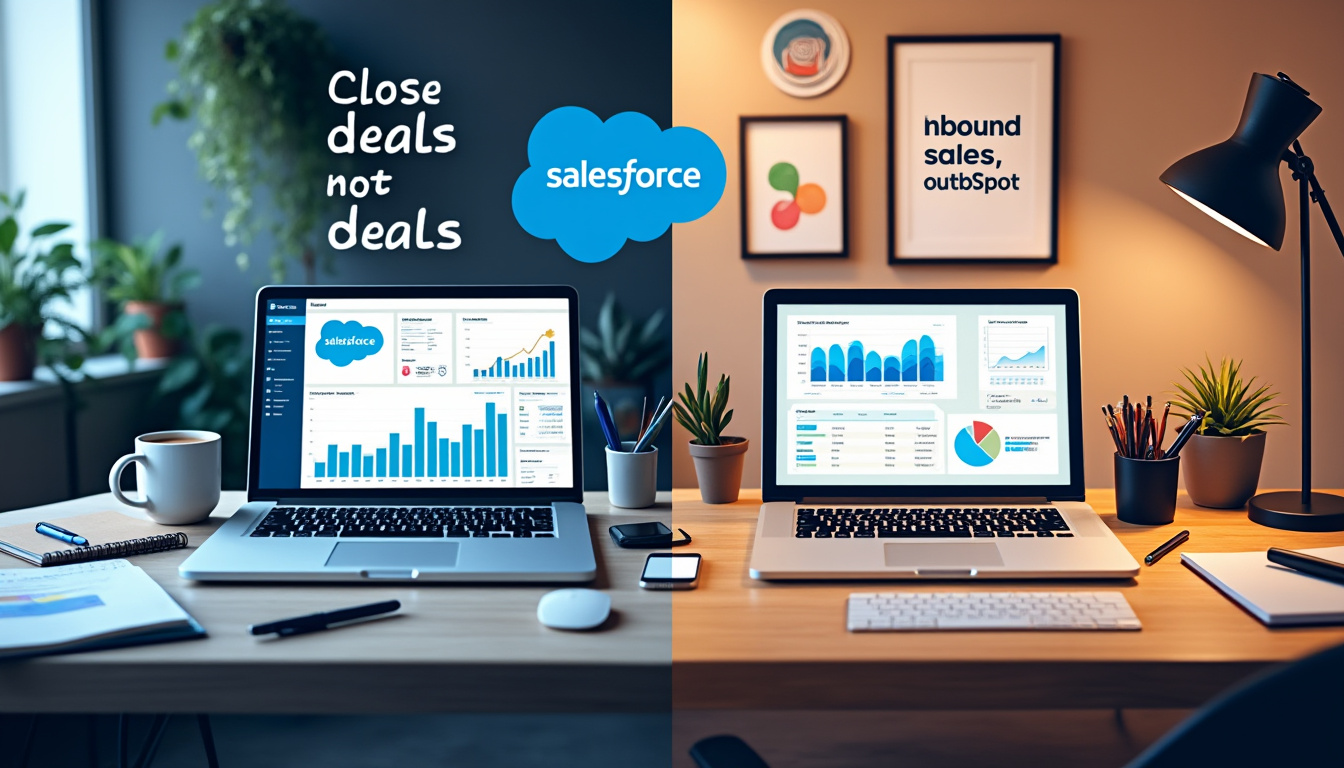In a world where businesses are continually seeking to optimize their sales efficiency, choosing a customer relationship management (CRM) tool is no easy task. In this in-depth analysis, we highlight the specific features and advantages of two industry giants: Salesforce and HubSpot. Each of these solutions offers a wealth of features, but which one best meets the needs of merchants and the demands of businesses in 2025? We’ll explore the strengths, weaknesses, and integration capabilities of the tools, hoping this comparison will help you make an informed choice. Summary Comparison Table Criteria Salesforce HubSpotRelevance
Comprehensive customer relationship management
| Flexible and marketing-oriented tool | Strengths | Functional depth, robustness |
|---|---|---|
| Ease of use, free offer | Weaknesses | High pricing, complexity |
| Limitations in certain advanced features | Integration | More than 5,000 applications |
| More than 1,700 applications | Trial | 30 days free |
| 14 days free | Comparison Criteria | To clearly understand the differences between |
| Salesforce | and | HubSpot |
, we established several essential comparison criteria. These criteria include:
Value for money : The effectiveness of a solution must be weighed against its cost. Features : The tools offered must meet the requirements of sales teams.Ease of use
- : The platform’s ergonomics directly impacts user adoption. Customer support
- : The responsiveness and quality of support can influence the user experience. Tool Integration: The ability to connect with other applications is crucial for a CRM platform. Each of these criteria will be discussed in greater detail in the following sections, allowing you to better understand the specific features of each solution.
- Detailed Analysis of Each Solution/Product Salesforce Overview
- Salesforce is considered a key player in the CRM field. This cloud platform offers comprehensive customer relationship management, encompassing tools for marketing, sales, customer service, and more. Leveraging robust data and artificial intelligence, Salesforce helps optimize the customer experience in a personalized way. Strengths
- Extensive Features : Salesforce offers a wide range of specialized applications, such as the
Sales Cloud
, the
Service Cloud
, and the Marketing Cloud
, designed to meet the diverse needs of businesses.
- Artificial Intelligence : Salesforce’s Einstein functionality allows you to use AI to predict trends and suggest strategies. Scalability: Salesforce is ideally suited for large and growing businesses, offering extensive customization. Weaknesses High Costs : Salesforce’s pricing can quickly add up, especially for small teams. Deployment Complexity:Setting up Salesforce can be laborious, often requiring the help of external consultants.
- Who it’s best suited for: Salesforce is primarily aimed at large companies or those with complex CRM requirements looking to integrate customized and advanced solutions into their operations.
- HubSpot Overview: HubSpot is a platform renowned for its ease of use and inbound marketing-focused approach. It offers a free CRM that serves as the foundation for a suite of tools for sales, customer service, and marketing. HubSpot’s primary goal is to attract prospects in a non-intrusive way and deliver personalized experiences.
Strengths:
- Intuitive interface Users appreciate the CRM’s ease of activation and use, with quick setup.
- Automation Tools Advanced features for automating sales processes are integrated, optimizing productivity.
Access to a Variety of Resources
HubSpot offers a wealth of educational content, training, and responsive customer support.
Cons
Limited for Large Enterprises Although advanced, HubSpot may face limitations for the needs of very large enterprises.
Limited Features in the Free Version
- Some features are only accessible in paid versions. Who It’s Best For
- HubSpot is perfect for small and medium-sized businesses looking for a simple, effective, and cost-effective solution to manage their leads and optimize their sales processes. Which is the Best Choice for You?
- The choice between Salesforce
and
- HubSpot largely depends on your business type and specific needs. Here are some typical profiles:
- Are you a freelancer? Choose HubSpot for a free CRM and simple automation tools. Business on a budget?
HubSpot offers cost-effective options, including free access to certain tools.
Larger enterprise with complex requirements?
Choose Salesforce, which can be customized to fit your specific processes.
Assessing your situation will help you determine the platform that best aligns your expectations and budget. Want to learn more about CRM tools? Don’t miss our next article on CRM software trends in 2025!




